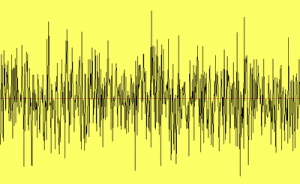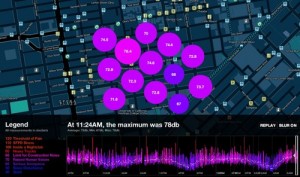Technology is constantly changing the way we interpret real estate, and a couple of new auditory innovations are looking to overhaul our perceptions all over again.
The first, the product of researchers at the University of Granada, uses neural networks to develop an urban noise forecasting model, which would use a number of datasets – street type, road conditions, speed limits, construction projects, etc. – to estimate urban noise levels for properties with a 95-percent reliability.
According to the Journal of the Acoustical Society of America, the university’s software will predict the frequency of the area’s noise and the type of noise, and departments as far ranging as computer science, artificial intelligence, civil engineering and applied physics all contributed to the research.
As impressive as the university’s research is, though, Agent Genius pointed out in a recent article that their auditory-based technology may come out one-step too late. Movity, a real estate search company, engaged in a remarkably similar project in San Francisco, where they partnered with Arup and Stamen Design and hunt decibel readers at 13 major intersections in the Tenderloin section of the city. The resulting data – 1.6 million data points – was visualized in an impressive map of the city:
“Moving into a bad area can greatly affect one’s quality of life,” the company wrote on its blog. “Our goal at Movity is to give home buyers and renters the data and content they want before making a such a large financial commitment. We hope a clear understanding of noise is one of those data points.”
So why should this worry the university? To answer a question with a question – what company purchased Movity in late 2010? San Francisco-based Trulia! which poses another, albeit infinitely louder question – could Trulia nationalize this technology to other major metropolitan areas, and then incorporate it in their standard home searches?
As cool as the technology sounds, though, Nancy Iliffe, an agent with Shelton and Stewart Realtors in South Miami and Master Brokers Forum member, is skeptical of both its accuracy and impact.
“I do not trust Trulia to give me a noise indicator anywhere,” Iliffe said, who has had issues with the syndicator in the past with inaccurate data on her listings. “It just sounds crazy.”
A good agent, Iliffe said, is primarily focused on making their clients comfortable with their future home, and he or she will be aware of a home’s relationship with noise regardless of what some technology decides.
“I just think a human being needs to decide that,” she said. “It’s just one more complication for us.”


